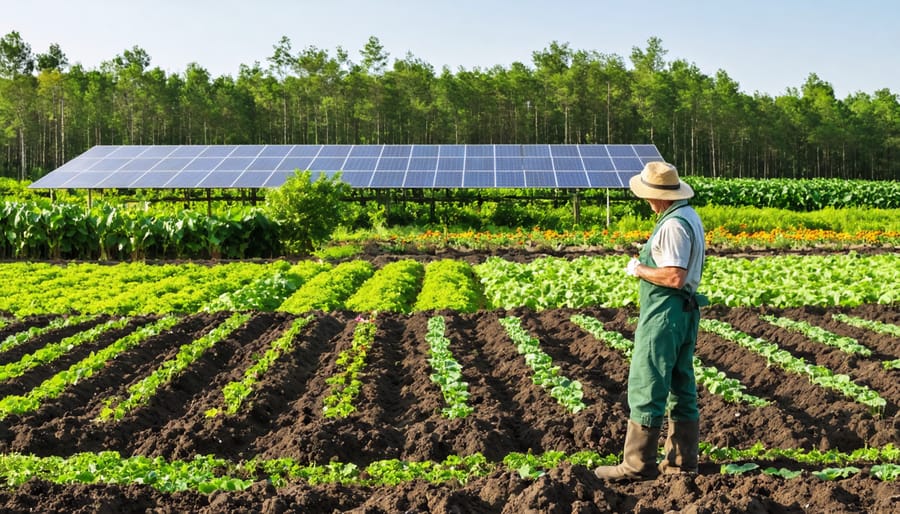Technological Innovation in organic farming
Technology is reforming organic farming by improving production, proficiency, and sustainability. While organic farming highlights natural means, modern tools and revolution play a critical role in developing its practices. Below are the key featuresCITATION Mee18 \l 4105 (Meemken & Qaim, 2018).
- Soil Health Monitoring Tools
Advanced soil monitoring kits and detectors helps farmer examine soil nutrients, pH levels, and moisture level. This ensures optimal planting and nutrient supervision without synthetic chemicals.
- Irrigation techniques
Bright irrigation systems, such as drip irrigation and automated sprinklers, conserve water supply it directly to plant roots. These systems reduce water wastage and enhance productivity.
- Seed Selection and development
Advance in breeding procedures enable the enhancement of heirloom and non-GMO seeds that are genuinely resistant to pests and illnesses, developing productivity in organic approaches.
- Renewable Energy integration
Solar panels wind turbines, are one of the most important technologies for organic farming on the other hand the biogas plants provide renewable energy to power organic farms, lowering their carbon footprint and dependence on fossil fuels
| Soil Health monitoring Tools |
Advanced kits help monitor soil nutients, PH, and moisture level |
| Irrigation Techniques | Smart systems like drip irrigation and sprinklers reduce water waste and improve efficiency |
| Seed Selection and development | Breeding methods improve heieloom and non-GMO seeds to resist pests |
| Renewable Energy integration | Solar panels, wind turbines, and biogas plants provide clean energy. |
